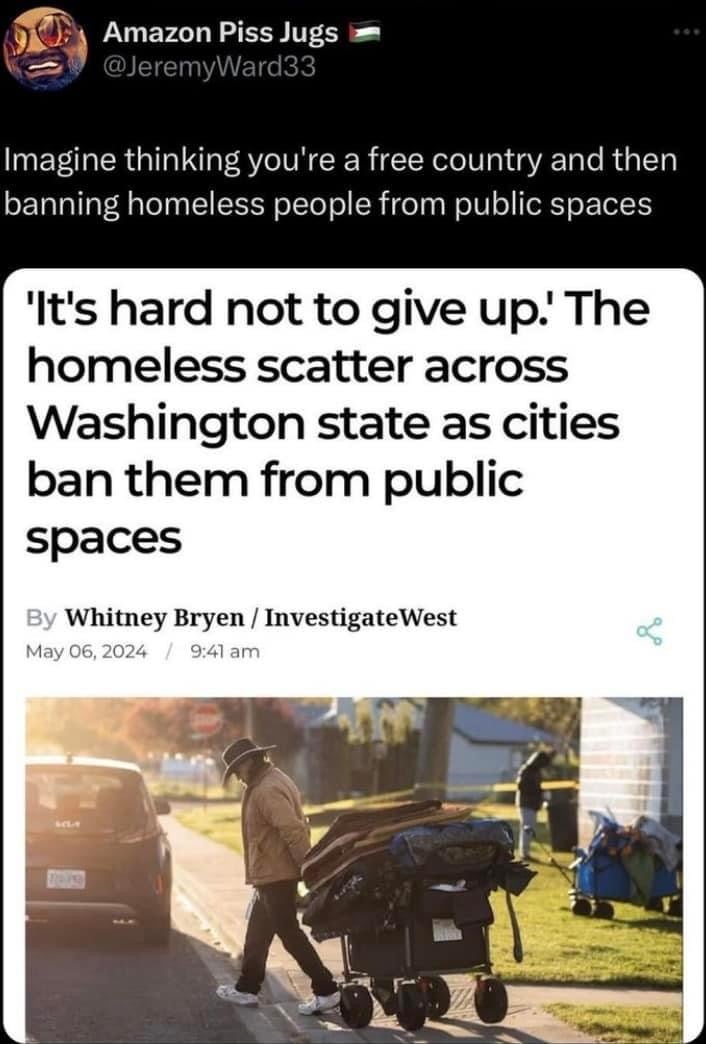this post was submitted on 09 May 2024
397 points (96.7% liked)
US Authoritarianism
1016 readers
45 users here now
ChonkyOwlbear is an Illegitimate Usurper
There's other groups and you are welcome to add to them. USAuthoritarianism Linktree
See Also, my website. USAuthoritarianism.com be advised at time of writing it is basically just a donate link
Cool People: [email protected]
founded 11 months ago
MODERATORS
you are viewing a single comment's thread
view the rest of the comments
view the rest of the comments

Someone already tried that in 1984. When homeless activists camped out on Lafayette Square in front of the White House, the Supreme Court ruled in Clark v. Community for Creative Nonviolence that the act of sleeping itself was “facilitative,” rather than “expressive,” meaning that campgrounds aren’t protected forms of speech at all.
No it was tried as a 1st amendment issue. It needs to be tried as a 4th amendment issue which it actually it.
Ie. Camping isn't protected under the first amendment act as it isn't expressive initself which that ruling if you read it makes clear. Essentially by itself it isn't but it could theoretically be made expressive but that hasn't be tried.
The Fourth Amendment has been interpreted to exclude not only homeless individuals’ privacy interests, but also their ability to move around in public spaces. The Fourth Amendment only covers police interactions with civilians where there is a seizure. However, an interaction is not considered a seizure when a reasonable individual would feel free to terminate the encounter (Florida v Bostick (1991)). Without a property interest to anchor a homeless individual to a particular location, a police officer’s directive to move along from a public place does not trigger any Fourth Amendment interest, since complying with the order will end the interaction and not deprive the homeless individual of any property (Stephen E. Henderson, “Move On” Orders as Fourth Amendment Seizures, 2008 BYU L. Rev. 1, 18 (2008)).
You can read it here. The defendants argued exactly that. It is the premise of the entire case.
They argue at length about the limits of this expression, and the distinction between facilitative and expressive acts. So it has definitely been tried, and has been thoroughly rebuked.
Move on is different then you cannot simply exist here, I already made mention of move on orders being legal.